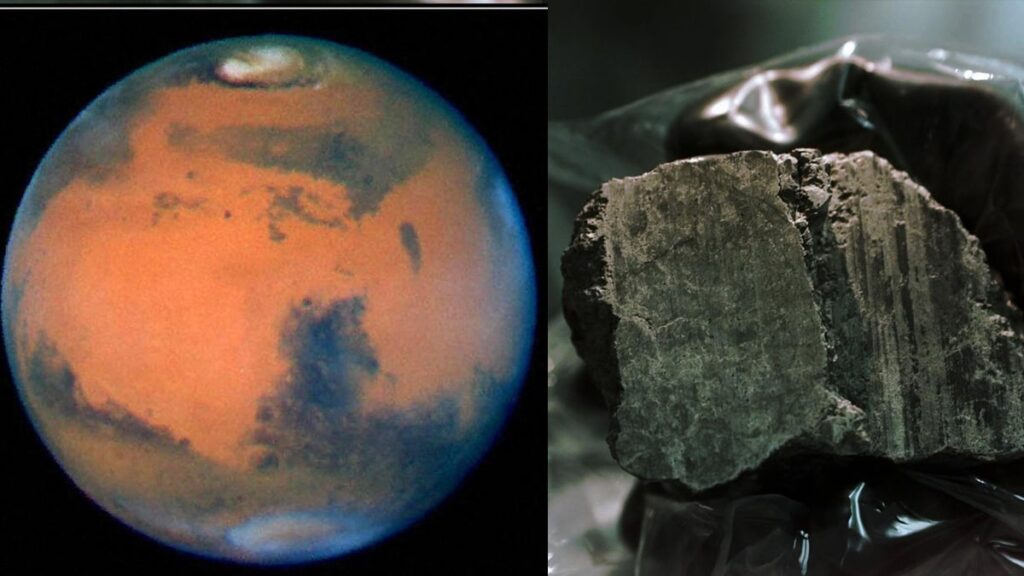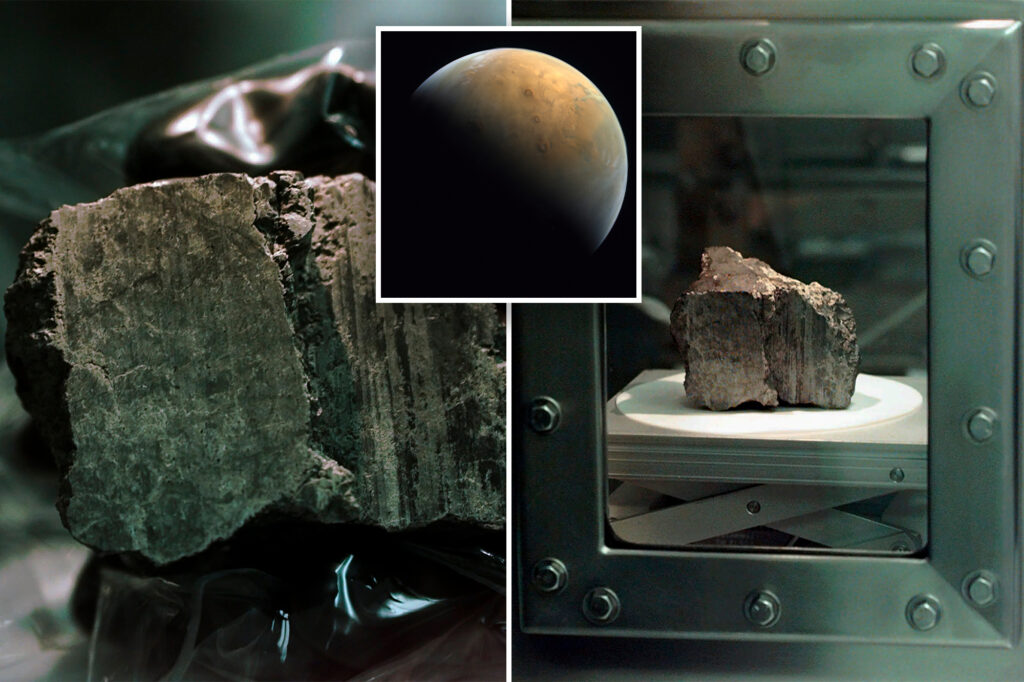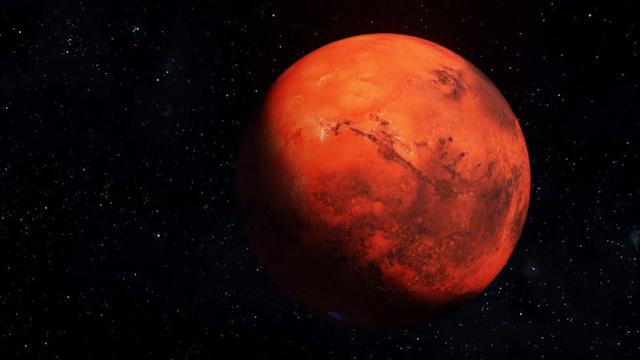
Scientists stated Thursday that a 4 billion-year-old meteorite from Mars that made a splash here on Earth decades ago bears no indication of ancient, primitive Martian life.
Organic molecules in the rock appeared to have been left by living beings, according to a Nasa-led team in 1996. Others were sceptical, and researchers have been chipping away at that premise for decades, most recently by a team led by Andrew Steele of the Carnegie Institution for Science.
Steele believes the carbon-rich compounds in the meteorite are the consequence of water — most likely salty or brackish water — passing over the rock for an extended period of time. The findings have been published in the journal Science.
At least two collisions happened near the rock during Mars’ wet and early history, scorching the planet’s surrounding surface before a third impact blasted it off the red planet and into space millions of years ago. In 1984, a 4-pound (2-kilogram) rock was discovered in Antarctica.
According to the researchers, groundwater seeping through the fissures in the rock while it was still on Mars generated the tiny globs of carbon that are there. The same phenomenon can happen on Earth, which could explain why there is methane in Mars’ atmosphere, according to the researchers.

However, two experts who were involved in the original study criticised the new findings, calling them “disappointing.” They stated they stand by their 1996 views in a joint email.
“While the data presented incrementally contributes to our knowledge of (the meteorite), the interpretation is scarcely original, nor is it supported by the research,” stated astromaterial researchers at Nasa’s Johnson Space Center in Houston, Kathie Thomas-Keprta and Simon Clemett.
They went on to say that “unsupported supposition does nothing to clarify the dilemma surrounding the origin of organic components” in the meteorite.
Steele claims that technological advancements enabled his team’s latest results.
He praised the original researchers’ measurements and said their life-claiming concept was “a plausible interpretation” at the time. He and his team, which includes Nasa, German, and British scientists, took care to convey their findings “for what they are, which is a really interesting discovery about Mars and not a study to debunk” the original premise, he added.
This discovery “helps develop the approaches we need to detect life elsewhere on Mars, or Enceladus and Europa,” Steele wrote in an email, referring to Saturn and Jupiter’s moons with subterranean oceans.
According to Steele, the only way to show whether Mars ever had or still has microbial life is to bring samples to Earth for analysis. Nasa’s Resilience Six samples have already been taken by the Mars rover, which will be returned to Earth in a decade or so; three dozen samples are needed.

The meteorite fell thousands of years ago on an icefield in Antarctica after floating through space for millions of years. The hills where the little gray-green chunk was discovered gave it the name Allan Hills 84001.
A fragment of this meteorite was employed in a first-of-its-kind experiment onboard the International Space Station just this week. The material was inspected using a miniature scanning electron microscope, which Thomas-Keprta controlled remotely from Houston. Researchers want to use the microscope to examine geology materials in space, such as those found on the moon, as well as trash that could damage station equipment or put people in danger.




